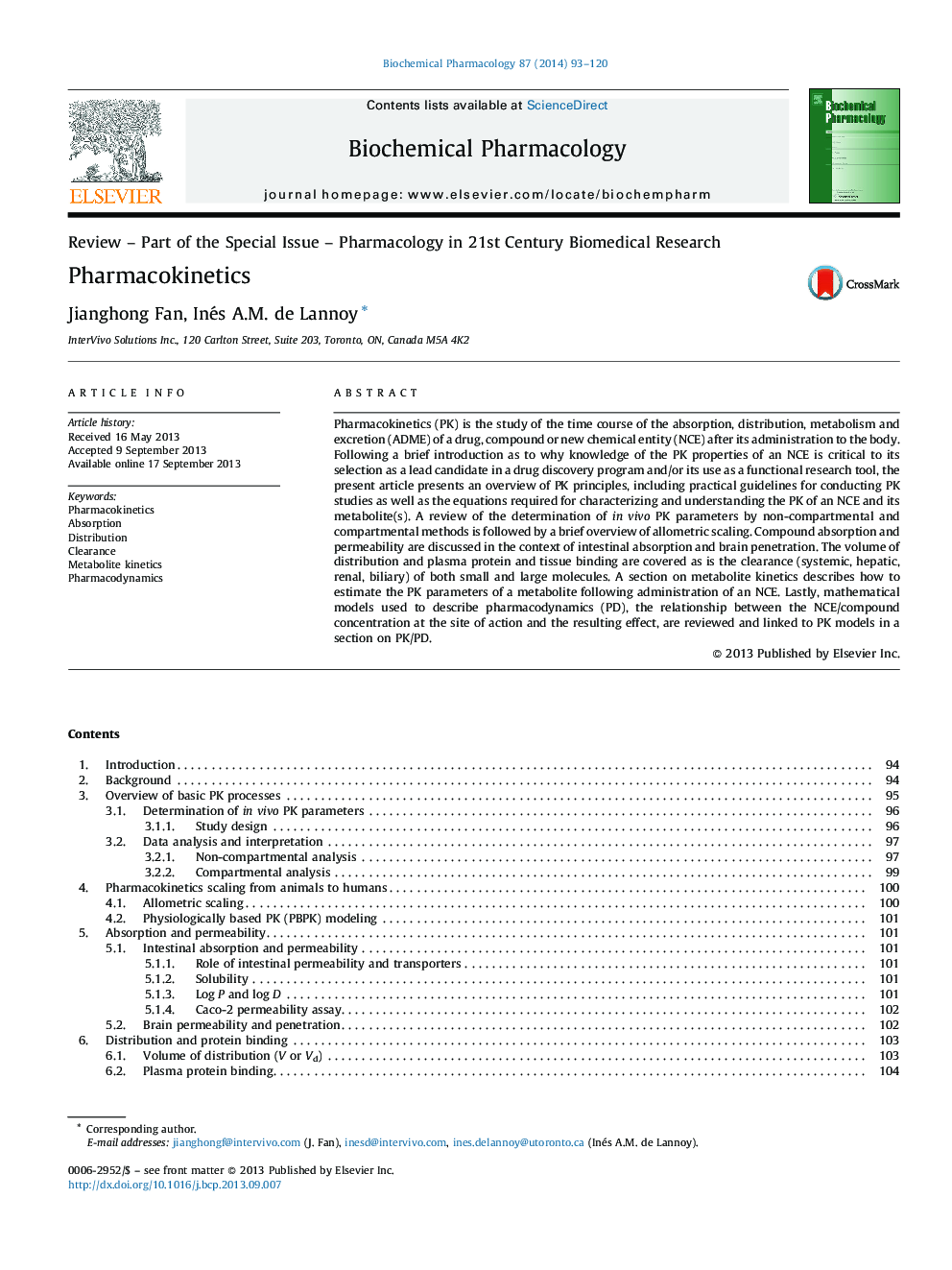| Article ID | Journal | Published Year | Pages | File Type |
|---|---|---|---|---|
| 2512415 | Biochemical Pharmacology | 2014 | 28 Pages |
Pharmacokinetics (PK) is the study of the time course of the absorption, distribution, metabolism and excretion (ADME) of a drug, compound or new chemical entity (NCE) after its administration to the body. Following a brief introduction as to why knowledge of the PK properties of an NCE is critical to its selection as a lead candidate in a drug discovery program and/or its use as a functional research tool, the present article presents an overview of PK principles, including practical guidelines for conducting PK studies as well as the equations required for characterizing and understanding the PK of an NCE and its metabolite(s). A review of the determination of in vivo PK parameters by non-compartmental and compartmental methods is followed by a brief overview of allometric scaling. Compound absorption and permeability are discussed in the context of intestinal absorption and brain penetration. The volume of distribution and plasma protein and tissue binding are covered as is the clearance (systemic, hepatic, renal, biliary) of both small and large molecules. A section on metabolite kinetics describes how to estimate the PK parameters of a metabolite following administration of an NCE. Lastly, mathematical models used to describe pharmacodynamics (PD), the relationship between the NCE/compound concentration at the site of action and the resulting effect, are reviewed and linked to PK models in a section on PK/PD.
Graphical abstractFigure optionsDownload full-size imageDownload as PowerPoint slide
